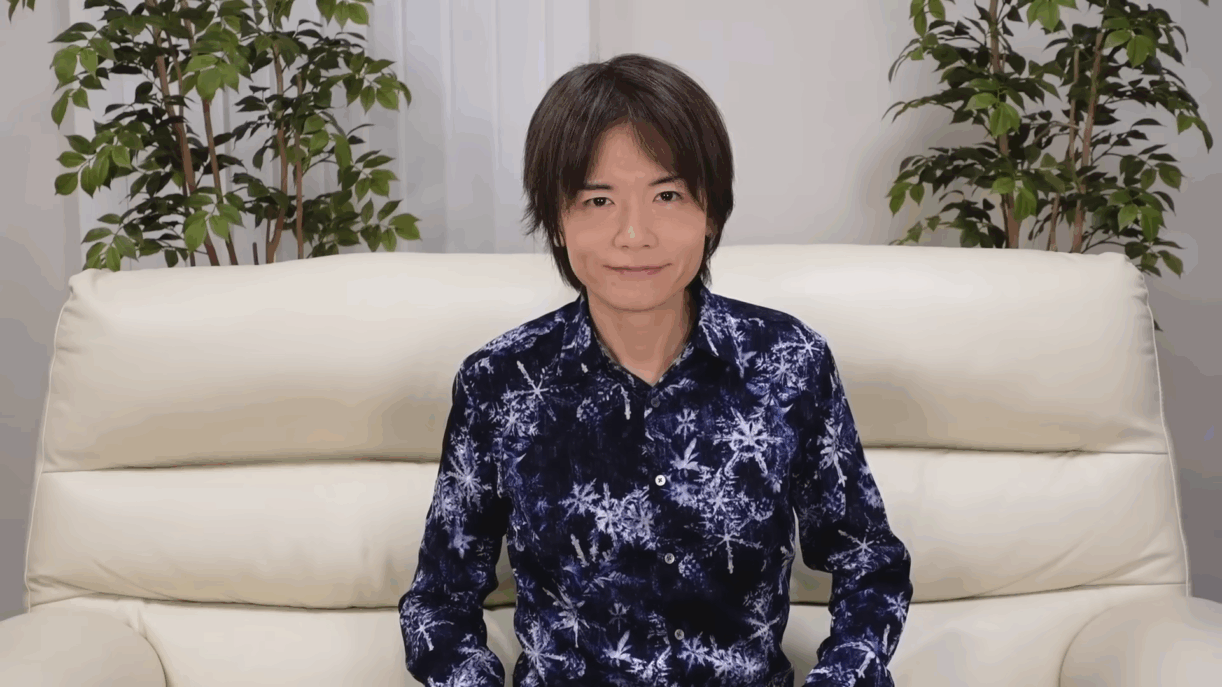Masahiro Sakurai Shares Insights on Creative Independence, Industry Trends, and the Future of Game Development
Celebrating a Lifetime of Innovation
In March of this year, renowned game industry veteran Masahiro Sakurai was honored with a lifetime achievement award at the 30th AMD Awards. During an interview with ITMedia Business Online—recently republished on Yahoo Japan—Sakurai opened up about his unique working style, the evolution of the gaming industry, and the role of emerging technologies like generative AI in game development.
From Nintendo Classics to Independent Creativity
Sakurai is best known as the mastermind behind iconic franchises such as Kirby and Super Smash Bros. After a long tenure at Hal Laboratory from 1989 to 2003, he chose to become a freelance creator, founding his own company, Sora Ltd., in 2005. In 2022, he launched the popular YouTube channel Masahiro Sakurai on Creating Games, where he shares insights, advice, and behind-the-scenes stories from his extensive career.
The Challenges of Leading a Game Studio
Sakurai’s approach to game development differs significantly from many industry leaders who have built their own companies. He explains, “When a game creator becomes the president of a company, it’s difficult to dedicate themselves fully to creative work. Balancing the responsibilities of management with producing engaging games often leads to a conflict — the more time spent on running a business, the less time remains for game development.”
Opting for Collaboration Over Management
This realization prompted Sakurai to adopt a unique working style: creating games without directly managing employees. “I prefer to collaborate with other game companies, which allows me to focus on the creative process without the burden of running a company,” he says. “This method has served me well, enabling ongoing creativity and innovation while avoiding the complexities of internal management.”
Building Trust and Flexibility in Teamwork
Nevertheless, Sakurai notes that working with different teams presents its own challenges. “Every new project requires establishing trust and developing effective working relationships from scratch. Flexibility is essential to adapt to various working styles and personalities,” he explains.
Effective Communication for Creative Success
One of Sakurai’s core principles is ensuring that all team members share a unified vision of the game. “I make it a point to share detailed information with everyone involved, whether they are designers, programmers, or artists,” he says. “This upfront clarity, though time-consuming, helps prevent misunderstandings and misaligned expectations. Relying solely on delegating ideas through producers can lead to significant miscommunication or even drastic deviations from the original intent.”
Is This Approach Suitable for the Entire Industry?
When asked whether his collaborative, trust-based method could serve as a model for the broader industry, Sakurai responds cautiously. “It depends on the individual. I’ve been able to achieve this because of the track record and trust I’ve built from my work on Kirby and Smash Bros. If someone hasn’t established that foundation, it’s much harder to adopt this style. Success in this approach comes with building alliances through consistent, high-quality work — it’s not a one-size-fits-all solution.”
The Decline of the Game Director Role
Sakurai highlights another pressing issue: the decreasing prevalence of the game director position. “Today, it’s becoming rarer to find someone who can oversee a large studio with hundreds of team members,” he notes. “While many people want to create or are creating games, there’s a shortage of skilled directors capable of managing complex, large-scale projects.”
The Impact of Specialization and Segmentation
He attributes this trend to the increasing specialization within game development. “In the past, individuals often transitioned from roles like graphic artist or planner to become directors. Now, roles are highly segmented — from modelers and effects artists to texture specialists — making it difficult to develop the broad skill set needed for a comprehensive leadership role. This specialization has fragmented the industry, leading to a scarcity of well-rounded directors.”
Carving Your Own Path in Game Creation
Sakurai emphasizes the importance of understanding and nurturing one’s unique strengths. “Everyone’s career path is different, and I don’t expect anyone to follow exactly in my footsteps. Instead, I encourage creators to focus on honing their individual talents and forging their own routes,” he advises. “Each person should aim to carve out their own space in the industry, rather than trying to imitate those who came before.”
The Future of AAA and Indie Games
Sakurai offers a sobering outlook on the sustainability of current game development practices. “Producing AAA titles on the scale we see today is becoming increasingly unsustainable due to the immense workload involved,” he states. “To address this, I believe the industry needs to embrace new tools like generative AI, which could significantly improve efficiency and reduce development costs.”
The Role of Artificial Intelligence in Game Development
He suggests that AI could be a game-changer, helping studios adapt to the demands of large-scale projects. “The key to survival for many companies will be integrating AI into their workflows, allowing for faster content creation and iteration,” Sakurai explains. “Those who respond effectively to these technological shifts will likely thrive in the future.”
Challenges Facing Indie Developers
While AI offers promising solutions for AAA studios, Sakurai acknowledges the hurdles faced by indie developers. “Indie games are appealing because of their creativity and freedom, but they also face fierce competition, requiring a combination of luck, effort, and polish to succeed,” he notes. “Standing out in a crowded market remains a significant challenge for independent creators.”
Current Projects and Future Endeavors
Sakurai is currently working on Kirby Air Riders for Nintendo Switch 2, continuing his legacy of innovative game design and storytelling. Fans eagerly await his next creative milestone, confident that his approach to game development will keep inspiring the industry for years to come.

